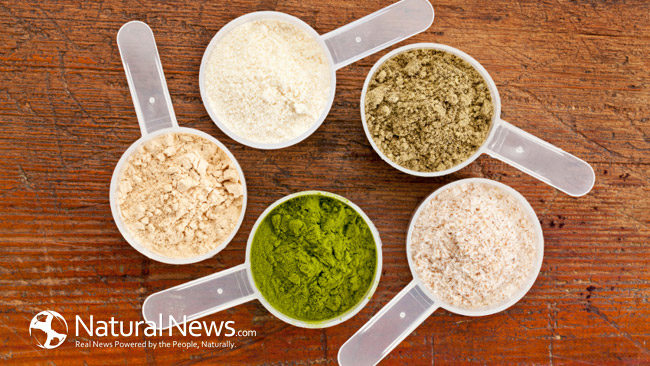If you’re sensitive to dairy- (whey) or egg-based protein products, it can be hard to get enough protein in your diet, unless you eat plenty of meat. Spirulina and chlorella are often touted as complete proteins, and for having a higher density of protein than meat, but this oft-cited fact is a bit misleading. Many are not yet willing to eat a steak-sized portion of chlorella every day, and the cost of consuming that much on a limited budget can be prohibitive. Fortunately, there are a number of good vegetarian protein options that each offer the complete spectrum of essential amino acids. Some are better than others, and this review is designed to help you decide which might work best for you:
1. Brown Rice Protein: Brown rice protein has become the leading alternative to whey and egg protein powders. The best kinds are made from sprouted rice, allowing the protein to be better digested, and are preferably organic. The downside is that it raises blood sugar levels fairly quickly for those with insulin sensitivity.
2. Pea Protein: Pea protein is surprisingly a great protein option. Most pea protein powders have been made to provide all eight essential amino acids in good proportion, and it should be a top choice any diabetic.
3. Hemp Protein: Hemp protein is lower in its density of protein. The majority of hemp protein products aren’t primarily composed of protein. They tend to contain a good amount of fiber, which is great if that’s what you’re looking for, but it makes it less a pure protein supplement than a protein-heavy hemp product.
4. Soy Protein: Soy protein has declined in popularity in recent years due to research that consumption of non-fermented soy products can lead to elevated levels of estrogen in men and women. However, it’s a complete protein, and can have a place in limited amounts. Just make sure it’s organic, or at least non-GMO. If it’s not, it’s probably been genetically modified, since close to 90% of the non-organic soy grown in the U.S. is.
5. Premium Protein Products: There’s a small subset of premium vegetarian protein products, and they’re expensive. The benefit though is these products aren’t just protein—they tend to blend high-protein superfoods together to create nutritionally dense products that verge on being healthy meal replacements. But because there’s more to them than protein, the amount of protein you actually get per tablespoon is less than a purer product.

By Jonathan Cho
Posted Wednesday, October 9, 2013 at 01:20pm EDT
Keywords: fitness, protein, Protein Powder, vegan, vegetarian, Whey Protein




